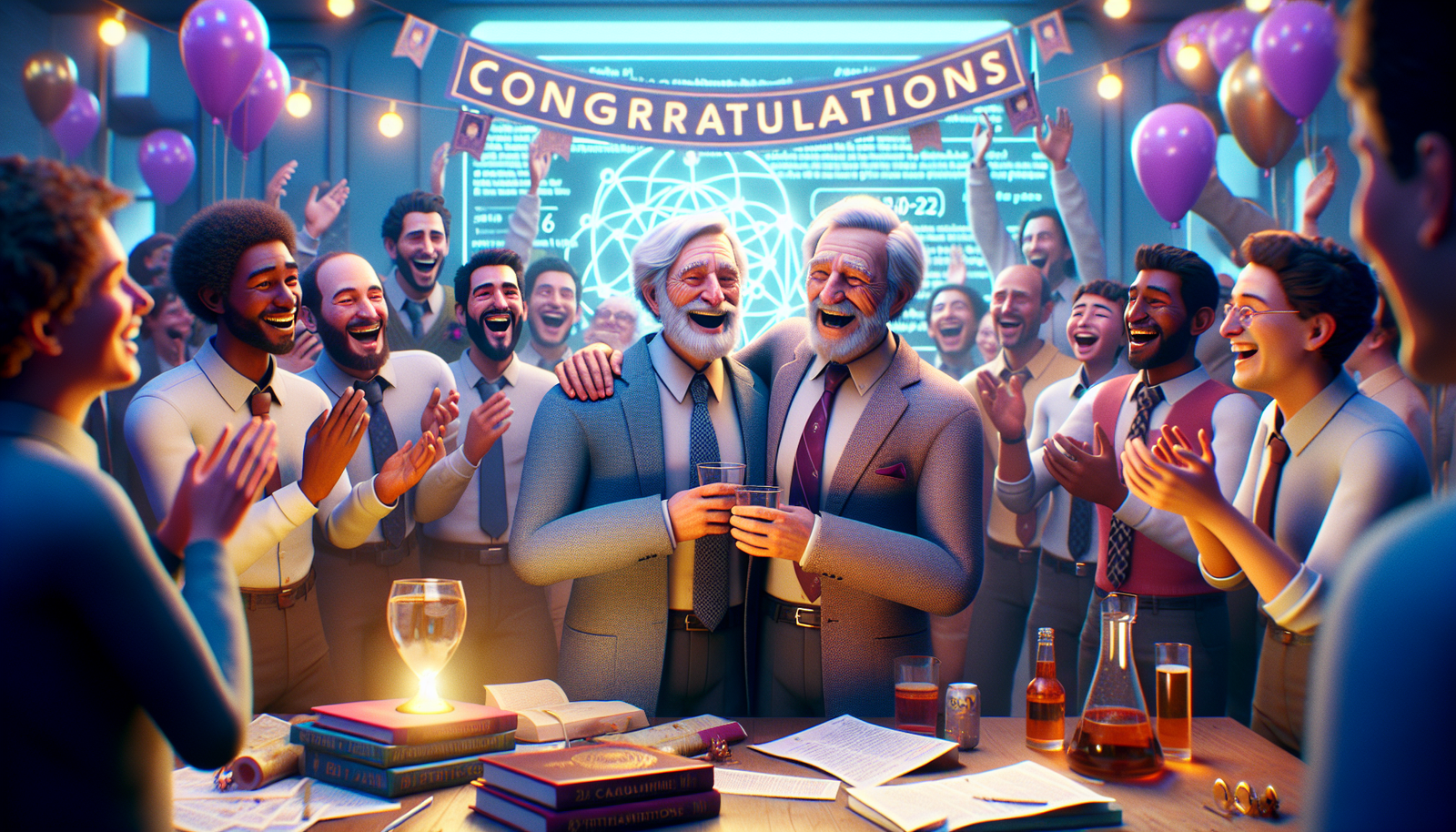The award of the Nobel Prize in Physics 2023 to John J. Hopfield and Geoffrey E. Hinton represents a turning point for artificial intelligence. These two eminent researchers have revolutionized our understanding of this discipline through their pioneering work, contributing to an unprecedented scientific advancement. The implications of their research delve into unprecedented ethical, technical, and societal questions.
Their discoveries transcend academic arenas to influence modern technology and the dynamics of the labor market. The potential impact of the solutions they propose across various sectors manifests in multiple applications, ranging from medicine to digital imaging. The international recognition for their contributions underscores not only their genius but also the growing importance of artificial intelligence in our daily lives.
The Nobel Prize Winners in Physics 2023
The Nobel Prize in Physics 2023 was awarded to John J. Hopfield and Geoffrey E. Hinton in recognition of their fundamental research that has shaped the field of artificial intelligence. Their contributions mark a significant milestone in the understanding and application of learning algorithms. Each of them has been involved in crucial advancements in neural networks and deep learning.
John J. Hopfield and His Contributions
John J. Hopfield is widely recognized for the development of the neural network model known as Hopfield networks. This model revealed how complex systems can efficiently store and retrieve information, inspiring future work in machine learning. His work has expanded the horizons of machines’ capabilities to process and synthesize data.
Geoffrey E. Hinton and His Impact
Geoffrey E. Hinton, often referred to as the father of deep learning, played a decisive role in the resurgence of modern artificial intelligence. His pioneering research on deep learning algorithms revolutionized the way machines perceive and analyze information. Hinton helped make neural networks accessible and applicable across various industries, from computer vision to healthcare.
A Thriving Field
The awarding of the Nobel Prize to Hopfield and Hinton highlights the rise of artificial intelligence in today’s scientific landscape. As the challenges of AI multiply, the work of these two researchers offers innovative perspectives on advanced solutions. The need for ethical and inclusive artificial intelligence is more urgent than ever. Future developments largely depend on the principles established by Hopfield and Hinton.
Perspectives on Artificial Intelligence
The research of the Nobel laureates also highlights the challenges posed by a constantly growing artificial intelligence. Appropriate regulation and adherence to ethical standards are becoming essential to avoid potential pitfalls. Discussions on how to create an infrastructure for responsible AI are already at the forefront of contemporary concerns.
A New Future for Research
This Nobel Prize emphasizes the importance of fostering interdisciplinary collaboration in the sciences. Their work inspires future generations of researchers to engage in areas that touch upon physics, computer science, and ethics. Robust research infrastructures are crucial to support innovation in artificial intelligence.
Reactions and Implications
The reactions to the announcement of the Nobel Prize in Physics are unanimous. Experts in the field have commented on the impact of this prize. According to many analysts, this recognition will serve as a catalyst for funding and research in the field of artificial intelligence. The scientific community expects these works to pave the way for even more revolutionary practical applications.
Future Commitments
The Nobel laureates continue to promote education and training in artificial intelligence. Initiatives aimed at training the next generation of AI experts are flourishing thanks to their influence. Specialized training programs are being established, encouraging sustainable and responsible learning for the future.
Frequently Asked Questions about the 2023 Nobel Prize in Physics
What contributions led to the awarding of the Nobel Prize in Physics 2023 to John J. Hopfield and Geoffrey E. Hinton?
John J. Hopfield and Geoffrey E. Hinton were awarded for their fundamental research in the field of artificial intelligence. Their work revolutionized the understanding and application of neural networks, thereby facilitating significant advancements in machine learning.
What distinguishes the research of Hopfield and Hinton in the field of AI?
Hopfield’s research on recurrent neural networks and Hinton’s work on deep learning models significantly improved the performance of learning algorithms, making AI more effective and applicable to various complex issues.
How do the discoveries of Hopfield and Hinton impact the development of artificial intelligence today?
Their discoveries laid the groundwork for current AI technologies, influencing areas such as computer vision, natural language processing, and recommendation systems. This also contributes to the rise of concrete applications in healthcare, finance, and many other sectors.
What challenges were faced during the research that led to these innovations?
The researchers encountered technical challenges related to the complexity of models, optimization of algorithms, and interpretability of neural networks. They also explored ways to make these technologies accessible and useful while addressing ethical concerns related to their use.
Have the works of Hopfield and Hinton been recognized before?
Before receiving the Nobel Prize, Geoffrey H. Hinton had already been recognized with various awards in the field of AI research, including the Turing Award. John J. Hopfield also had a rich career with significant contributions to neuroscience and neural network models.
How might the research of these laureates evolve in the future?
With the rapid evolution of artificial intelligence technologies, the research of Hopfield and Hinton continues to inspire new studies. Further developments in more robust learning systems, optimized algorithms, and ethical approaches for AI can be expected.
What is the potential impact of this work on society?
Advancements in artificial intelligence, such as those driven by Hopfield and Hinton, have the potential to enhance aspects such as industrial process efficiency, service personalization, and even solving global problems like climate change, making technologies more accessible and beneficial for all.






